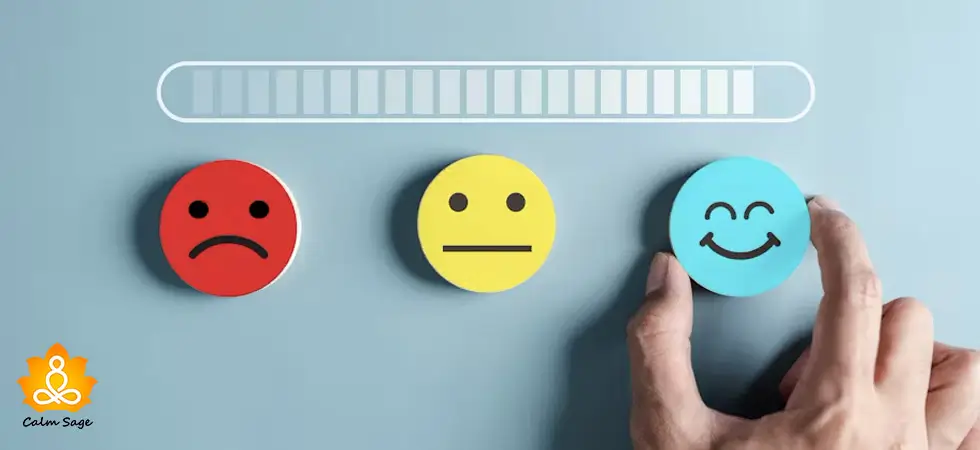What Dreams Tell About Our Mental Health?

A hot water bath and a good night’s sleep is all we need after a long tiring day. Our body is at rest while we sleep but is our mind really at rest?
Experts say that our mind works like an ant, it’s hard to say when it’s resting. We can surely relax our mind but rest? I highly doubt it!
Let’s find out what our mind is up to while we sleep…
What is a Dream?
Dreams are a series of thoughts, images, sensations and emotions we feel while we are sleeping. Dreams are often random and mostly feel like you’re involved in a lot of activities.
Dreams have always grabbed my attention. Are you someone who wants to find out more about your dreams too?
Some say that dreams are a result of random firing of our neurons and mean nothing. Whereas many claim that dreams are a window to our unconscious. Dreams hold a lot of meaning which can be helpful to deal with many things in life.
Sigmund Freud has always given dreams a lot of importance in his research. He believed that ‘Dreams are the royal road to the unconscious.’
The knowledge we possess about dreams is just the tip of an iceberg. Interpretation of your dreams can really help you dig deep into your unconscious. It may help in identifying some underlying psychological disorder or even simple stressors that trigger you.
Dreams are not always indicating some problem, sometimes they may just be a recollection of what your unconscious mind picked up during the day.
Why Do We Dream?
Our mind doesn’t do anything just for the sake of doing it. It always has a purpose. There are many theories about dreams and here are a few things that contribute to the role of dreams:
1. Strengthens memory: Dreams help in memory consolidation, our mind recalls important information after its initial acquisition to stabilize a memory trace.
2. Emotional processing: Dreams help you process stress and other emotions so that you can move on. If emotions are left unprocessed they might result in phobia or psychological disorders.
3. Express your desires: Sometimes we express our deepest desires through our dreams. When we are facing a dilemma, dreams can help us choose.
4. Confronting dangers: Dreams can prepare us to confront potential dangers.
Dreams do not have a set pattern, it can be a combination of above-listed things. Dreams serve different purposes during different stages of sleep. REM sleep is said to have the most vivid dreams which can be easily recollected while non-REM dreams are mostly forgotten.
ALSO READ: Sleep and Mental health | Are They Related?
Can you recall any of your dreams? I once dreamt of losing all my hair, they just slipped out of my head like a wig. It felt so real that I still have a strong memory of it. I wonder what it meant.
Vivid Dreams: Are They a Sign of Mental Illness?
There are many types of dreams like
- Daydreaming
- Recurring dreams
- Prophetic dreams
- Healing dreams
- False awakening
- Vivid dreams
Vivid dreams interest me the most and daydreaming is what I indulge in the most!
Usually, when we wake up we have very little or no memory of what we have dreamt of. But sometimes the dream is so intense that you wake up with a good memory of your dream. These dreams are called vivid dreams.
You can often remember your last dream but fail to recall it after sometime. In the case of a vivid dream, the memory of it lasts long.
Vivid dreams may indicate some underlying mental issue. Experts are still not completely sure but strongly feel that the following may be the reason behind a particular dream
1. Stress: We all deal with stressors in our own unique manner. While some events may seem normal, might trigger some stress and can result in anxiety. Friends and family-related issues or dealing with traumatic events like losing someone can cause vivid dreams.
2. Disturbed sleep: Sleeping disorders like insomnia can also be the reason behind vivid dreams. Sometimes lack of sleep, being jet-lagged or a change in your sleep cycle can also cause vivid dreams.
3. Depression: Vivid dreams are often related to depressed people. Studies show that depressed people dream more often than others.
4. Medication or substance abuse: Please who are taking strong medications or are victim to substance abuse stand a chance of vivid dreams, even nightmares.
Dreams are often influenced by our thoughts and emotions. Our thoughts and emotions tell us a lot about our mental health.
Read on to find out how mental health affects our dreams…
Can Dreams Predict Mental Health Issues?
Tracking your dreams has proven to be helpful in identifying mental health issues. Dreams often direct us towards the root cause of our problem rather than pointing out the issue itself.
By tracking your dream I mean that you can note down the strongest emotion that you felt during the dream. And then you can reflect upon your emotions felt in your last few days. You will see that emotions at both times are similar.
Let’s see how dreams are related to mental health
DEPRESSION
- Increased number of dreams.
- Difficulty in recalling dreams
- Frequent nightmares
- Death is a recurring subject in dreams
SCHIZOPHRENIA
- Dreams often include stranger rather than friends and family
- Being victim to hostility is a common theme in their dreams
MOOD DISORDERS
- Disturbing dreams
- Dreams about bodily injury or death
- Decreased occurrence of dreams before a depressive episode
PTSD
- Nightmares (flashbacks of the trauma)
- Similar dreams occurring more than once
ALSO READ: Imagery Rehearsal Therapy: An Effective Treatment For PTSD
ANXIETY
- Stressful dreams
- Dream about events in the future
- Dreams about failure
- Disturbed dreams (about things you’re scared of)
These are some types of dreams which occur because of some psychological issue. These dreams are not exclusive to the mentioned disorder.
If you are already being treated for a psychological disorder, dreams can help you identify the root cause. Dreams reflect your raw emotions. We should all pay attention to our dreams, maybe they are trying to tell us something.
Final Words
Having a vivid dream or some particular dream is not always a direct indicator of a psychological disorder. But yes, if there is a psychological issue then these dreams can tell a lot.
Having disturbing or bizarre dreams once in a while are very normal. You do not need to psychoanalyze yourself after every dream you have. Trust me on this, been there and done that!
Keeping a track of your dreams is good so that you can identify the change.
I hope all your doubts are clear about dreams and mental illness. Dreams can indicate mental illness so be alert!
Remember, you’re not alone!
Feel free to write to us at info@calmsage.com, you can also connect with us on all social media platforms.
Take care! Stay safe!





















Well written, well covered adequate information is available in the Article is very helpful